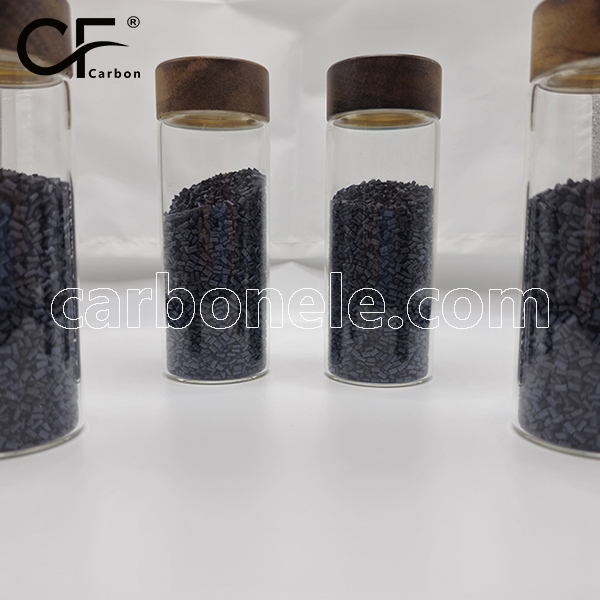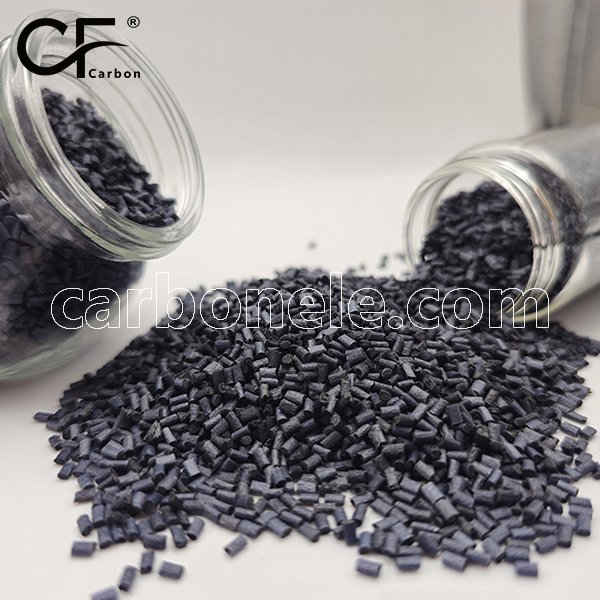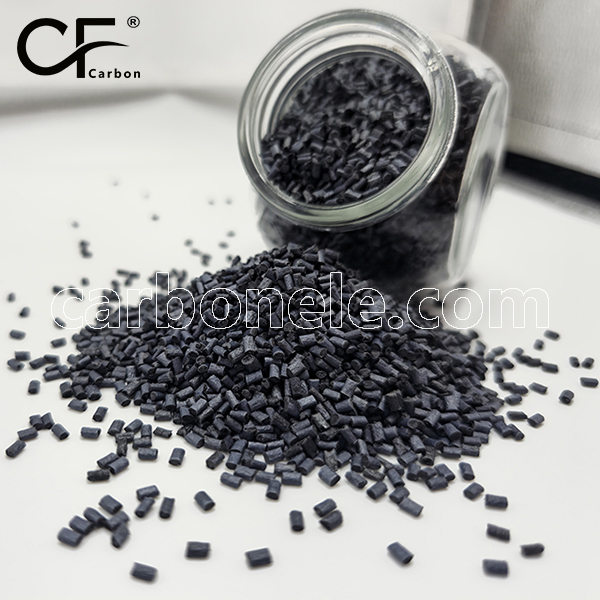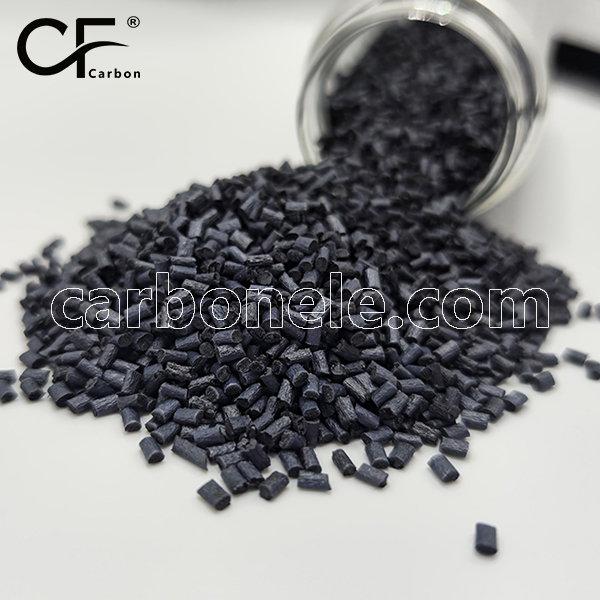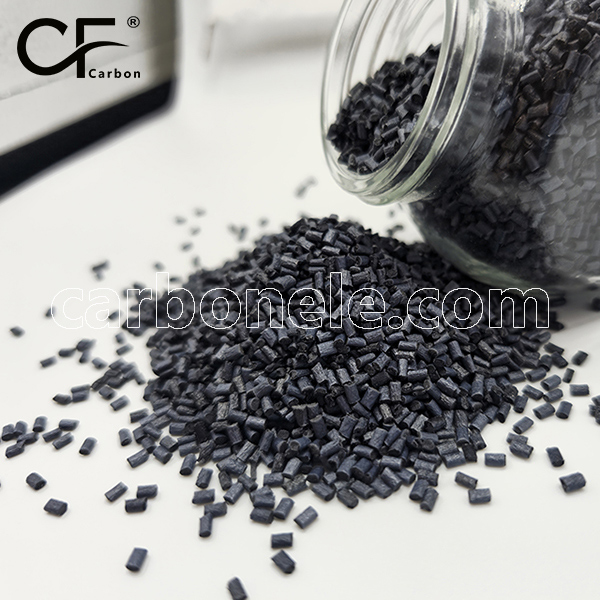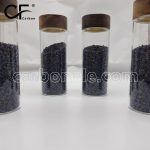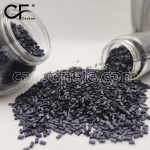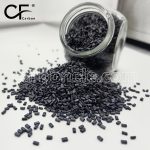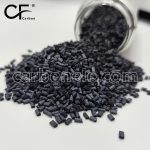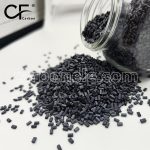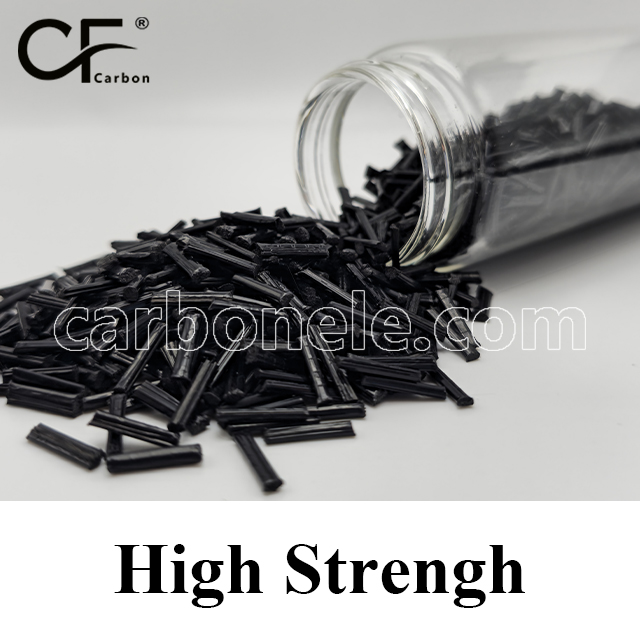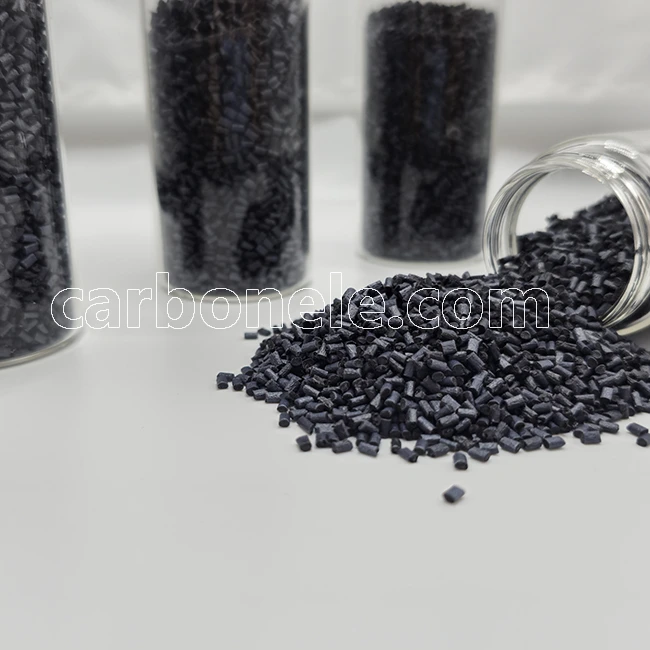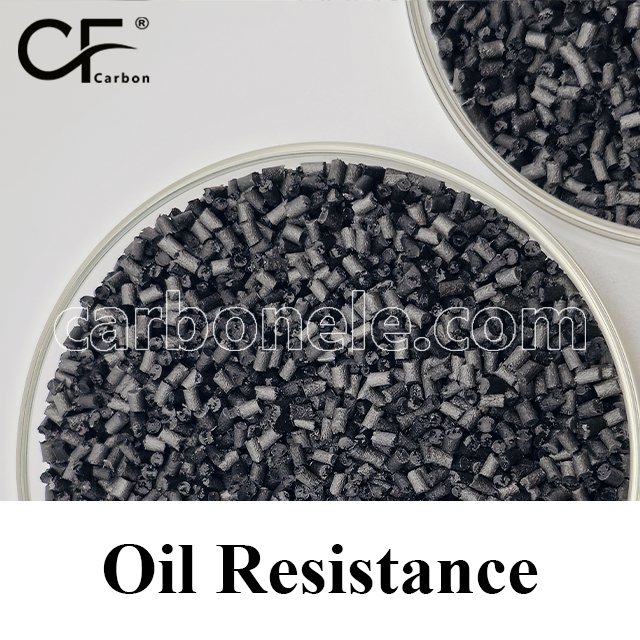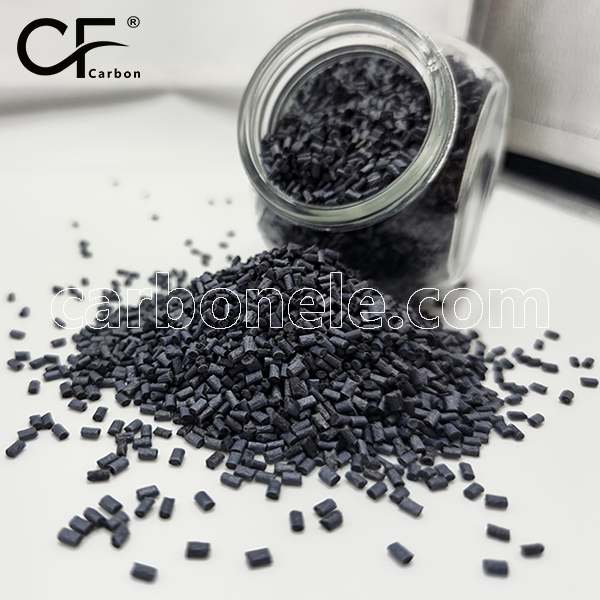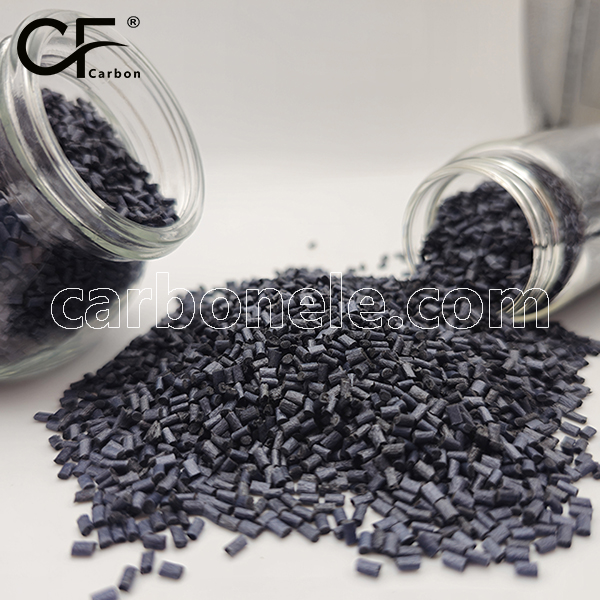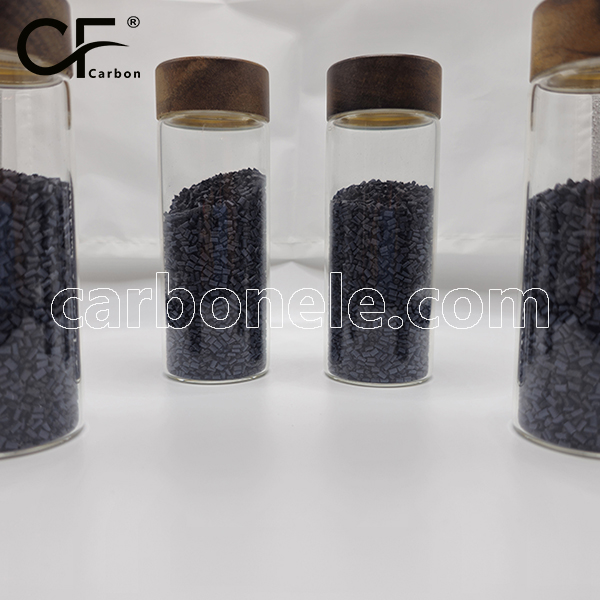
PPS-CF60 Anti-Corrosion! Essential for Chem Equipment
PPS-CF60 – High-performance carbon fiber-reinforced PPS plastic for extreme chemical resistance & durability. Ideal for chemical pumps, valves, seals & industrial equipment. Reduce maintenance & boost safety!
- Model number: PPS-CF-BCA6
- Matrix Resin: Polyphenylene Sulfide (PPS)
- Reinforcing Filler: Carbon fiber
- Appearance: Granules
- Grade: Injection/extrusion grade
- Packaging: 25kgs/bag
Introduction to PPS-CF60
PPS-CF60 is a high-performance thermoplastic composite designed to deliver superior mechanical strength, remarkable chemical resistance, and long-term durability in demanding industrial environments. Its composition combines a polyphenylene sulfide base with a significant carbon fiber reinforcement, resulting in a material capable of withstanding both harsh chemical exposure and extreme mechanical stress. This makes it a reliable solution for industries where performance under corrosive conditions is non-negotiable.
From chemical processing facilities to high-temperature equipment housings, it consistently demonstrates exceptional performance. Its ability to resist degradation from acids, bases, and solvents means it can operate for extended periods without significant wear. The result is fewer part replacements, reduced maintenance costs, and improved operational safety.
Why PPS-CF60 is Trusted in Chemical Equipment
The chemical industry demands materials that can survive in environments where exposure to aggressive substances is frequent and unavoidable. It has become an industry standard for this type of application. The carbon fiber reinforcement not only boosts mechanical performance but also enhances dimensional stability, ensuring components maintain their shape and integrity even after prolonged use.
In pumps, valves, gaskets, and fluid handling components, it performs without warping, cracking, or degrading. This stability is especially critical in systems where even minor dimensional changes could result in leaks or operational failures. Furthermore, the low moisture absorption of PPS-CF60 ensures that environmental humidity has minimal impact on part performance.
Application Example: Chemical Pump Impeller
One of the most common and valuable uses of PPS-CF60 is in the manufacturing of chemical pump impellers. These components must operate in direct contact with aggressive liquids at high temperatures and pressures. A standard plastic or metal impeller might corrode, deform, or suffer premature wear under such conditions, leading to costly downtime.
With PPS-CF60, pump impellers maintain their structural integrity and efficiency over extended operational cycles. The combination of corrosion resistance and high stiffness allows the impeller to perform at optimal levels without frequent replacement. In practice, this means chemical plants can run longer production cycles with reduced interruptions for maintenance.
Properties That Set PPS-CF60 Apart
Exceptional Corrosion Resistance
PPS-CF60 resists a broad range of aggressive chemicals, including strong acids, caustic solutions, and many organic solvents. This is crucial in applications where contact with these substances is inevitable. Its chemical stability reduces the risk of material failure, contributing to improved system safety.
High Mechanical Strength
With its carbon fiber reinforcement, PPS-CF60 provides outstanding tensile and flexural strength. This makes it suitable for load-bearing components where other plastics might fail. The rigidity and resistance to creep ensure that mechanical properties are retained even under constant stress.
Dimensional Stability
Even under high temperatures and chemical exposure, it maintains precise dimensions. This is particularly important for components that require tight tolerances, as it ensures consistent performance over time.
Low Moisture Absorption
Materials that absorb moisture tend to swell, warp, or lose mechanical properties. It has a naturally low moisture absorption rate, allowing it to remain dimensionally stable and mechanically sound even in humid conditions.
Industrial Benefits of PPS-CF60
Reduced Maintenance Costs
By using PPS-CF60 in critical parts, companies can significantly cut down on maintenance and replacement expenses. The material’s durability means fewer interruptions to repair or replace worn components.
Enhanced Equipment Longevity
The high performance of PPS-CF60 extends the service life of chemical equipment, leading to a better return on investment. The longer components last, the less frequently production must be halted for maintenance.
Improved Operational Safety
In chemical processing, material failure can lead to dangerous leaks or system malfunctions. PPS-CF60 reduces these risks by offering consistent, reliable performance in even the harshest environments.
PPS-CF60 in Specific Chemical Equipment Applications
Valves and Seals
Valves and seals made from PPS-CF60 provide excellent shut-off and leak prevention in systems transporting corrosive liquids or gases. The material’s stability ensures reliable sealing even after prolonged use.
Pump Housings
PPS-CF60 pump housings can endure continuous contact with aggressive chemicals without losing shape or strength. This allows pumps to operate efficiently for longer periods between servicing.
Mixer Components
Industrial mixers often deal with reactive or abrasive mixtures. PPS-CF60 is ideal for blades, paddles, and other moving components, as it resists wear while maintaining mechanical stability.
Flow Meter Parts
Flow meters require precision to measure liquid or gas flow accurately. PPS-CF60 ensures that components retain their accuracy by resisting chemical degradation and physical deformation.
Why PPS-CF60 is an Upgrade Over Traditional Materials
Compared to metals, PPS-CF60 offers superior corrosion resistance without the need for protective coatings. This eliminates the risk of coating failure and subsequent rapid corrosion. Compared to unreinforced polymers, PPS-CF60 provides far greater stiffness, wear resistance, and dimensional stability. This combination makes it a compelling choice for engineers seeking long-term, low-maintenance solutions.
Environmental and Operational Versatility
PPS-CF60 is not limited to chemical industry applications. Its unique combination of properties makes it suitable for other sectors, such as oil and gas, power generation, and water treatment. In each of these environments, the material’s ability to perform under chemical attack and mechanical stress is a decisive advantage.
Conclusion: PPS-CF60 as the Material of Choice
For any application where chemical resistance, mechanical strength, and long-term reliability are critical, PPS-CF60 is the logical choice. Its performance in chemical equipment such as pumps, valves, and seals is proven, and its versatility ensures it can meet the demands of multiple industries. By integrating PPS-CF60 into your designs, you ensure that equipment remains operational longer, safer, and with less maintenance.
Friction coefficient of PPS-CF
The friction coefficient of PPS (Polyphenylene Sulfide) typically ranges from 0.3 to 0.45, while PPS-CF (Carbon Fiber Reinforced Polyphenylene Sulfide) has a lower coefficient, generally between 0.2 and 0.35. The addition of carbon fiber improves hardness, wear resistance, and reduces friction, making PPS-CF more suitable for high-load, high-temperature, and high-friction applications.
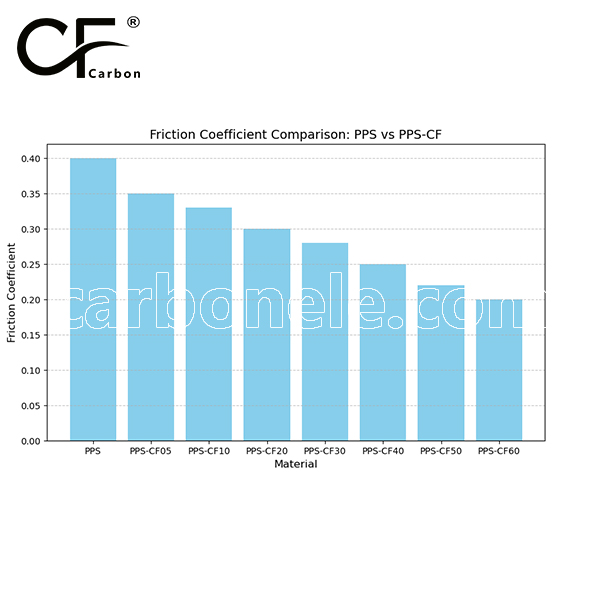
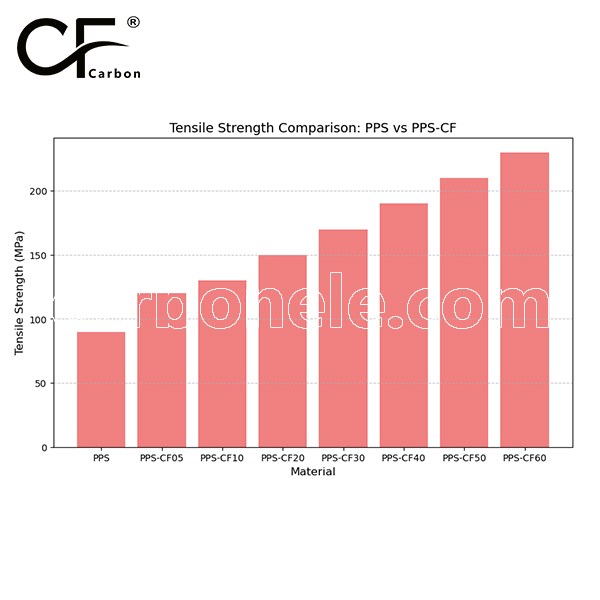

Frequently Asked Questions
Carbon (Xiamen) New Material Co., Ltd. aims to provide buyers with "one-stop" worry-free high-quality services. Here you can find all information about carbon fiber engineering plastics. If you still have questions, please send us an email for consultation!
-
How can I contact the manufacturer of a product that interests me?
When you find a product you are interested in, you can contact the manufacturer directly by sending an email and we will get back to you as soon as possible.
-
How do I find the products that interest me?
All you need to do is enter the keyword, product name in the search window and press the Enter key on your keyboard. Your search results page will then be displayed. You can also search within the product category pages on the home page. Each category is divided into subcategories, allowing you to refine your search and find products that interest you.
-
Where will I find a buying guide?
Please contact our after-sales service directly and we will provide you with a comprehensive operating guide.
-
What are CF Reinforced Thermoplastic Composites?
CF Reinforced Thermoplastic Composites are materials where carbon fibers are incorporated into a thermoplastic matrix. They combine the strength and stiffness of carbon fibers with the processability and recyclability of thermoplastics. For instance, they are used in automotive parts like bumper beams.
-
What are the benefits of CF Reinforced Thermoplastic Composites over traditional composites?
The key benefits include faster production cycles, easier recyclability, and better impact resistance. They also offer design flexibility. An example is in the manufacturing of consumer electronics casings where complex shapes can be achieved more easily.
-
How are CF Reinforced Thermoplastic Composites processed?
Common processing methods include injection molding, extrusion, and compression molding. Injection molding is widely used for mass production. For example, in the production of small components for the medical industry.
-
What industries use CF Reinforced Thermoplastic Composites?
They are utilized in aerospace, automotive, medical, and sports equipment industries. In aerospace, they can be found in interior components. In the medical field, they might be used in prosthetics.
-
How does the carbon fiber content affect the properties of the composites?
Higher carbon fiber content generally leads to increased strength and stiffness but may reduce ductility. A moderate content is often balanced for specific applications. For example, a higher content might be preferred in structural parts of a race car.
-
What are the challenges in using CF Reinforced Thermoplastic Composites?
Challenges include higher material costs, complex processing equipment requirements, and ensuring uniform fiber dispersion. Issues with adhesion between the fibers and the matrix can also arise. An example is in achieving consistent quality in large-scale production.







